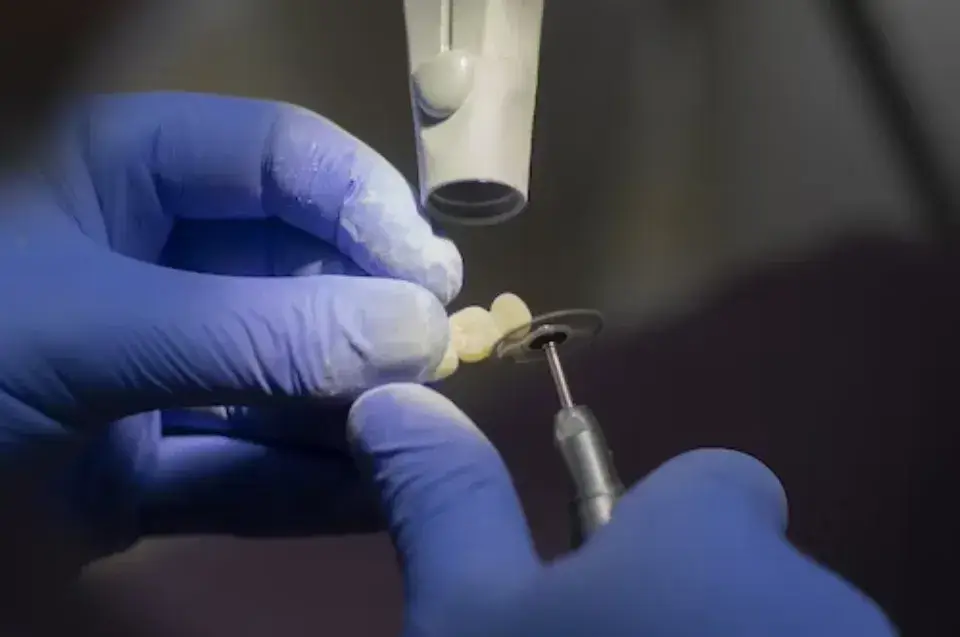New
Special Offers For: Pediatric Children's Dentistry + Braces for All Ages. Limited Time Offer
Open ’til 7pm + Saturday
Call Us
832-804-7427
832-804-7427

Are you considering dental implants to restore your smile and regain your confidence? Dental implants are a popular and long-lasting solution for replacing missing teeth.
In this article, we will delve into the world of dental implants and provide you with valuable information on their lifespan, benefits, and maintenance.
So, let's explore the answer to the question on everyone's mind: How long do dental implants last?

A dental implant is a metal post that is put into the jawbone by surgery to replace the root of a removed tooth. This post is a strong base for a fake tooth or crown that is made to match the shape, size, and color of your real teeth.
People know dental implants for how long they last, how well they work, and how nice they look.
Having a complete set of teeth enhances your smile and plays a vital role in your oral health. The surrounding teeth can shift when a tooth is lost, leading to misalignment and bite issues.
Additionally, the jawbone can start to deteriorate due to a lack of stimulation, causing facial sagging and further tooth loss. Dental implants help prevent these problems and provide a long-term solution for missing teeth.
Dental implants offer numerous benefits, making them an excellent choice for tooth replacement. Here are some of the advantages of dental implants:
Understanding the process of getting dental implants can give you a better idea of why they are long-lasting and successful. Here are the typical steps involved:
If you have a damaged or decayed tooth that needs to be replaced with an implant, the first step is to remove the tooth carefully. The area is numbed, and the tooth is extracted with precision and minimal discomfort.
In some cases, the jawbone may require additional preparation before the implant can be placed. This step involves bone grafting, where artificial or natural bone material is added to strengthen the jawbone and ensure its ability to support the implant securely.
Once the jawbone is prepared (if necessary), the dental implant is surgically placed into the bone. This implant acts as the anchor for the artificial tooth that will be attached later.
After implant placement, the healing process begins. The jawbone gradually fuses with the implant through a process called osseointegration. This fusion provides a stable and durable foundation for the artificial tooth.
Once the implant has fused with the jawbone, a piece called an abutment is attached to it. The fake tooth or crown is attached to the support, which acts as a base.
The fake tooth or crown is attached to the joint in the last step. This tooth is made just for you so that it fits in perfectly with your normal teeth, works well, and looks good.

Several factors can influence the lifespan of dental implants. Understanding these factors will help you make informed decisions and take the necessary steps to ensure the longevity of your implants.
Keeping up with good oral health is important if you want your dental implants to last a long time. Regularly brushing, flossing, and rinsing with an antibiotic mouthwash will help keep your gums and teeth healthy, avoiding gum disease and implant failure.
Smoking and drinking too much liquor can shorten oral implants' life. These habits can make it harder to heal, make you more likely to get sick and cause bone loss. For implants to last as long as possible, it is best to stop smoking and drink less.
Dental implants could be hurt by accidents or injuries to the mouth. So, it's important to protect your implants by wearing a mouthguard when you play sports or do other things that could cause damage to your mouth.
Dental implants may not work as well or last as long if you have diabetes that isn't under control, an allergic disease, or weak bones.
It is very important to talk to your doctor about your medical background to make sure that tooth implant placement is possible.
When considering dental implants, understanding the associated costs is essential. The cost of dental implants can vary depending on several factors, including the number of implants required, the need for additional procedures like bone grafting, and the location of the dental practice. It is recommended to consult with your dentist to get a personalized treatment plan and an accurate estimate of the costs involved.
Even though dental implants are considered a therapeutic treatment, not all dental insurance plans cover them. But some plans may cover only part of the cost or offer ways to pay for the service, making it more affordable.
Your best option is to check with your dental insurance company or discuss payment plans with your doctor.
Proper maintenance is crucial to ensuring the longevity of dental implants. Here are a few key steps to take care of your implants:
Brush your teeth twice a day with a soft-bristled toothbrush and non-abrasive toothpaste. Flossing should be done daily to remove plaque and food particles from hard-to-reach areas around the implants.
Schedule regular check-ups and frequent cleanings with your dentist to monitor the health of your implants. Professional dental cleanings will help free your gums and implants from plaque and bacteria, reducing the risk of complications.
While dental implants have an impressive lifespan, it's essential to understand how they compare to other dental prosthetics in terms of durability and longevity. Let's explore a few common dental prosthetics and their average lifespan:
Traditional dental bridges typically last between 10 and 15 years with proper care. However, they may require replacement or repair over time due to wear and tear.
Conventional removable dentures generally last around 5 to 8 years, although their fit and functionality may deteriorate over time. Implant-supported dentures offer increased stability and longevity, lasting up to 15 years or more.
Dental veneers are thin shells bonded to the front surface of teeth to improve their appearance. With proper care, veneers can last anywhere from 10 to 15 years.
Dental implants are known for their exceptional longevity. With proper care and maintenance, dental implants can last a lifetime. However, it's essential to note that the artificial tooth or crown attached to the implant may require replacement after 10 to 15 years.
There are several reasons why you may need a dental implant. Common dental issues that may require implant placement include:
The best time to obtain a dental implant differs from person to person and is determined by personal circumstances. In general, obtaining an implant shortly after a tooth extraction is advised to avoid bone loss and preserve the jawbone's integrity.
However, dental implants may still be a feasible alternative if you've been missing some teeth for a while. Consultation with a dental specialist can assist you in determining the optimal time for your implant procedure.
If you are considering dental implants, Lovett Dental is here to provide you with exceptional care and expertise. Our team of experienced dentists specializes in implant dentistry and is dedicated to helping you achieve a healthy, beautiful smile.
With state-of-the-art technology and a patient-centered approach, we offer personalized treatment plans tailored to your unique needs.
Visit Lovett Dental today to schedule a consultation and explore the possibilities of dental implants. Reclaim your smile, restore your confidence, and enjoy the long-lasting benefits of dental implants!
Embrace the transformation and embark on a journey to a healthier and more confident you with dental implants at Lovett Dental.

In summary, dental implants are a remarkable solution for missing teeth, offering longevity, functionality, and aesthetics. Dental implants can last a lifetime with proper care and maintenance, providing you with a permanent and natural-looking smile.
You can make an informed decision about dental implant treatment by understanding the steps involved, factors influencing lifespan, and comparison to other dental prosthetics. Remember, dental implants are an investment in your smile and overall oral health and well-being.
So, take the first step towards a brighter future with dental implants and enjoy the benefits for years to come.
Lovett, Splendid & Haven Dentistry
Dental Offices in TX